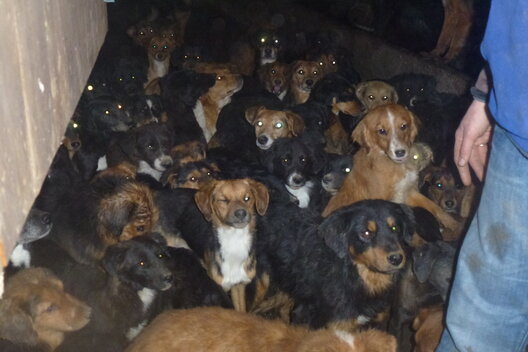When dogs and cats are allowed to move inKeeping pets in the apartment
Over 34 million pets live in Germany.1Anyone who has animal roommates or would like to adopt them should consider their own living situation and find out about the rules for keeping pets in advance. Whether you own or rent an apartment, there may be restrictions on keeping pets in both cases. Although landlords are not allowed to prohibit the keeping of pets per se, it is important to address the issue in good time. After all, dogs and cats are not allowed to move in just like that. Owners should also be careful if a dog or other animals are part of the family.

Keeping animals in condominiums
Whether dogs, cats or other pets are allowed in condominiums is not uniformly regulated. However, when buying an apartment, the owners usually agree to house rules that may include rules on keeping pets. In addition, it is possible for the condominium owners' meeting, i.e. the entirety of the sub-owners and condominium owners of a condominium complex, to set guidelines for keeping animals by majority resolution in accordance with Section 23 in conjunction with Section 25 of the German Condominium Act (WEG). For example, the number of animals kept can be limited to one dog or cat per apartment. Another possible regulation would be that residents may only walk their dogs on a lead in communal areas such as hallways or green areas.
Can a community of owners ban a pet?
A community of homeowners can only demand that an animal move out if it severely restricts their property rights - for example, if a dog attacks the other residents in the hallway or garden despite being muzzled and on a lead. If a dog permanently barks so loudly that all neighbors feel unreasonably disturbed, this can also lead to a ban. However, the homeowners' association can only achieve a ban if the majority of the homeowners agree to a proposed resolution at a meeting. Pet owners have four weeks to lodge an appeal against the resolution with the local court. If they miss this deadline, the resolution is legally binding.

Keeping animals in rented apartments
Keeping animals in rented apartments is not generally regulated by law. It always depends on what the tenancy agreement says in this regard and what form of animal keeping the landlord has expressly approved. If the tenancy agreement does not contain any provisions on keeping animals, this is covered by general residential use. This is because animals are an important part of many people's lives and are therefore part of their lifestyle, which they generally realize in their home.2Nevertheless, pet owners should clarify whether dogs, cats and the like are allowed to live in their rented apartment before signing a tenancy agreement or moving in an animal. Landlords usually only give permission for certain types of animals or for a limited number of animals - for example, one dog or two cats. Such an agreement is not usually included in the general terms and conditions of the tenancy agreement, but must be inserted separately in the agreement itself or written permission must be granted if possible. If you want to adopt more animals over time, you will need additional permission.
Blanket ban by landlords inadmissible
As long as tenants do not keep an excessive number of small pets, landlords may not prohibit the keeping of rabbits, guinea pigs or hamsters. Landlords may also not generally prohibit the keeping of dogs and cats. The situation is different for so-called list dogs such as bull terriers or American Staffordshire terriers, i.e. dog breeds that are sometimes classified as dangerous by law - in this case, landlords are allowed to prohibit the keeping of dogs across the board. The regulations for keeping "dangerous animals" vary from state to state - owners should find out about the exact requirements early on. Owners also need the landlord's permission to keep other animals that are also considered dangerous due to their size or toxicity. This applies to snakes, tarantulas and scorpions, for example.
Sources and further information
1 https://www.zdf.de/nachrichten/panorama/haustier-katze-deutschland-rangliste-tierfreunde-100.html
2 Melanie Sölnder: Münchener Kommentar zum BGB, 9. Auflage, 2023, § 535, Rn. 112





